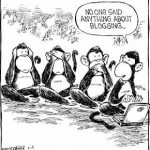MAKING PUBLIC THE POLITICS OF EVIDENCE
Soon after we started the Big Push Forward I had a telephone conversation with a senior manager in an international development agency. He told me:
We negotiated for several months with [a government funder]. They themselves knew it was ridiculous what they were asking for but they said it was political. In the end it comes down to money and for X millions of dollars we had to agree. But we rely on you academics working on the flanks to start a conversation about how nonsensical it all is.
 This is just one of many other experiences that have been shared with us as part of the ongoing BPF conversation. The messages we have received are not just from those in UN agencies and NGOs at the receiving end of donor funds. Staff within bilateral agencies are also telling us about what one person referred to as the ‘pressure cooker’ demands on country programmes. A key issue to explore is whether pressures are the result of what has been requested or perceptions of what is required.
This is just one of many other experiences that have been shared with us as part of the ongoing BPF conversation. The messages we have received are not just from those in UN agencies and NGOs at the receiving end of donor funds. Staff within bilateral agencies are also telling us about what one person referred to as the ‘pressure cooker’ demands on country programmes. A key issue to explore is whether pressures are the result of what has been requested or perceptions of what is required.
But because this experience is neither collated, viagra nor analysed, ambulance it is easy for senior managers, ministers and politicians to remain impervious to the possible consequences of a narrow focus on evidence and results. Moreover – as a Big Push Forward subscriber e-mailed me – in countries and organisations where this agenda has not yet been adopted, people want the evidence people about the consequences of these demands that may help them avoid or mitigate a similar situation.
The former director of USAID, Andrew Natsios, is a rare exception when it comes to going on record. His much-quoted essay reveals how the layers of bureaucracy that implement results and impact measurement are undermining the agency’s efforts to support transformational development. But he was able to do this because he is retired. When you are still working at the coal face, it is exceedingly risky to stick your neck out and talk about your experience of how certain forms of results measurement may in practice be hindering transformational development
People may also feel that they are not able to explain their experience in a way that others see as ‘evidence’, or that their personal experience does indeed constitute evidence.
Those who experience the day to day effects of the results agenda as distorting and counter-productive know only too well what is happening. In political sociology, such conversations have been described by James Scott as ‘hidden transcripts’ to describe what he refers to as ‘subordinate discourse outside of power-laden situations’. In international development practice, these are the conversations that happen around the water cooler, on field trips or in the bar.
In preparation for next year’s Politics of Evidence conference the Big Push Forward we need to move beyond such conversations and make these transcripts public. We are proposing an innovative approach by testing means to explore these sensitive issues. Possibilities we are looking into for generating conference cases and material include fictionalised writing, crowd sourcing and secure on-line discussion platforms. Do let us know if you have additional suggestions about how to do this.
The Big Push Forward- in particular through next year’s conference – aims to bring our collective knowledge out from the shadows. The international development sector needs to have an evidence-informed debate about the politics of evidence.
Comments are closed.